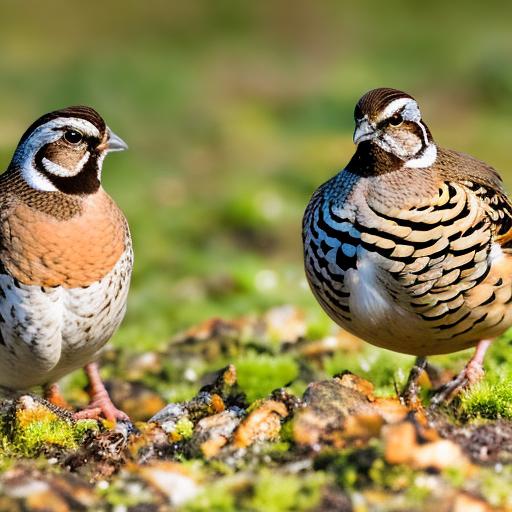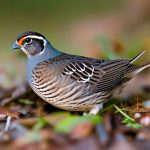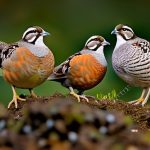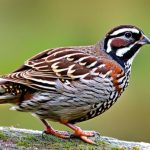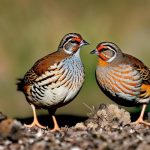Quail keeping is a rewarding and enjoyable hobby that can be pursued by individuals of all ages. Quails are small, ground-dwelling birds that are known for their gentle nature and beautiful plumage. They are relatively easy to care for and can be kept in a variety of settings, including backyard pens, aviaries, and even indoor enclosures. When starting out with quail keeping, it is important to consider the specific needs of these birds in terms of housing, feeding, and overall care.
One of the first things to consider when keeping quail is the type of housing they will require. Quails are ground-dwelling birds and will need a secure enclosure that provides them with plenty of space to move around and forage for food. The enclosure should also offer protection from predators and the elements, as well as adequate ventilation to ensure good air quality. Additionally, it is important to provide a suitable substrate for the quails to walk on, such as sand or straw, as well as nesting boxes for them to lay their eggs. In terms of feeding, quails require a balanced diet that includes a mix of commercial quail feed, fresh greens, and the occasional treat such as mealworms or fruits. It is also important to provide fresh, clean water at all times, as quails can quickly become dehydrated if they do not have access to water.
Overall, quail keeping can be a highly rewarding experience for individuals who are willing to put in the time and effort to care for these delightful birds. With the right housing, feeding, and care, quails can thrive in a variety of settings and provide their keepers with hours of enjoyment.
Key Takeaways
- Quail are small, ground-dwelling birds that are relatively easy to keep and care for.
- Quail are social birds that thrive in small flocks and exhibit interesting behaviors such as dust bathing and foraging.
- Quail require a minimum of 1 square foot of space per bird in their living area to ensure their well-being and comfort.
- Quail have specific dietary needs and require access to clean water at all times to maintain their health.
- Regular health checks, proper sanitation, and disease prevention are essential for keeping quail healthy and thriving.
Understanding Quail Behavior
Quails are fascinating birds with unique behaviors that make them a joy to observe and care for. Understanding quail behavior is essential for providing these birds with the best possible care and ensuring their overall well-being. Quails are social creatures that thrive in the company of their own kind, so it is important to keep them in groups rather than as solitary individuals. They are also ground-dwelling birds that spend much of their time foraging for food and dust bathing to keep their feathers clean and healthy.
In addition to their social nature, quails are also known for their distinctive vocalizations. Male quails will often call out to attract females during the breeding season, creating a delightful chorus of sounds that can be heard throughout the day. Quails are also known for their ability to fly short distances when startled, so it is important to provide them with a secure enclosure that prevents them from escaping. Overall, understanding quail behavior is essential for providing these birds with a suitable environment that meets their social and physical needs.
Space Requirements for Quail
When it comes to keeping quail, providing adequate space is essential for ensuring their overall health and well-being. Quails are active birds that require plenty of room to move around, forage for food, and engage in natural behaviors such as dust bathing and nesting. The amount of space required for quail will depend on the number of birds being kept and the specific breed, but as a general rule of thumb, it is recommended to provide at least 1 square foot of space per bird in the enclosure.
In addition to floor space, it is also important to consider the height of the enclosure, as quails are known for their ability to fly short distances when startled. A minimum height of 12 inches is recommended to prevent the birds from escaping. It is also important to provide plenty of hiding spots and sheltered areas within the enclosure to allow the quails to feel safe and secure. Overall, providing adequate space for quail is essential for ensuring their physical and psychological well-being.
Feeding and Watering Quail
Feeding and watering quail is an important aspect of their care that requires careful attention to ensure their overall health and well-being. Quails require a balanced diet that includes a mix of commercial quail feed, fresh greens, and the occasional treat such as mealworms or fruits. It is important to provide high-quality feed that is specifically formulated for quails, as well as access to fresh water at all times.
In addition to their main diet, quails will also benefit from access to grit, which helps them digest their food more effectively. Grit can be provided in a separate dish within the enclosure and should be replenished regularly. It is also important to monitor the quails’ food intake and adjust their diet as needed based on their activity level and overall health. Additionally, providing fresh, clean water at all times is essential for preventing dehydration and ensuring the quails’ overall well-being.
Health Considerations for Quail
Maintaining the health of quail is essential for ensuring their overall well-being and longevity. Like all animals, quails are susceptible to a variety of health issues that can impact their quality of life if not addressed promptly. Common health considerations for quail include parasites such as mites and lice, respiratory infections, and nutritional deficiencies. It is important to monitor the quails regularly for any signs of illness or distress and seek veterinary care if needed.
In addition to regular monitoring, providing a clean and sanitary environment is essential for preventing health issues in quail. This includes regularly cleaning the enclosure, providing fresh bedding, and ensuring that food and water dishes are kept clean and free from contamination. It is also important to provide a balanced diet that meets the nutritional needs of the quails and to monitor their food intake to ensure they are receiving adequate nutrition.
Breeding and Reproduction
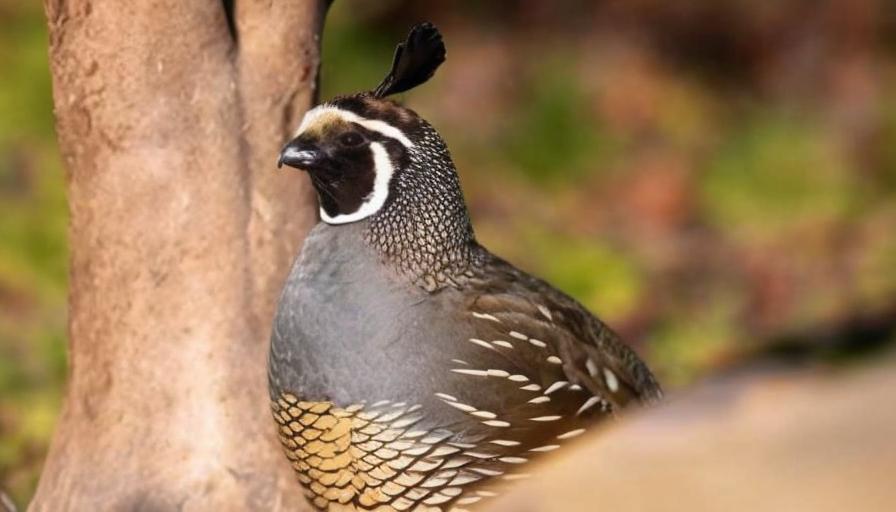
Breeding quail can be a rewarding experience for individuals who are interested in expanding their flock or producing eggs for consumption. Quails are prolific breeders that reach sexual maturity at a young age, typically around 6-8 weeks old. When breeding quail, it is important to provide them with a suitable nesting area that offers privacy and protection from disturbances. This can be achieved by providing nesting boxes within the enclosure or by creating natural hiding spots using plants or other materials.
Once the quails have mated and the female has laid her eggs, it is important to provide her with a quiet and secure environment to incubate the eggs. Quail eggs typically take around 17-18 days to hatch, at which point the chicks will require warmth, protection, and access to food and water. It is important to monitor the chicks closely during this time to ensure they are healthy and thriving.
Potential Challenges of Keeping Quail Together
While keeping quail can be a highly rewarding experience, there are also potential challenges that individuals may encounter when caring for these birds. One common challenge is maintaining a suitable social dynamic within the flock, as quails can be territorial and may exhibit aggressive behaviors towards one another if not provided with enough space or resources. It is important to monitor the flock closely for any signs of aggression or distress and to provide plenty of hiding spots and resources to prevent conflicts.
Another potential challenge of keeping quail together is preventing escapes from the enclosure. Quails are known for their ability to fly short distances when startled, so it is important to provide a secure enclosure that prevents them from escaping. This may involve covering the top of the enclosure with netting or wire mesh to prevent them from flying out.
Overall, while there are potential challenges associated with keeping quail together, with proper planning and care, these delightful birds can thrive in a variety of settings and provide their keepers with hours of enjoyment.
If you’re considering keeping twenty quail together, you might also be interested in learning about the ideal vegetables for quails to eat. Check out this informative article on what vegetables do quails eat to ensure you’re providing your quail with a balanced and nutritious diet. Understanding their dietary needs is essential for their health and well-being.
FAQs
Can I keep twenty quail together?
Yes, you can keep twenty quail together as long as you provide enough space, food, and water for all of them.
How much space do twenty quail need?
Twenty quail will need at least 4-5 square feet of space per bird in their enclosure to ensure they have enough room to move around and avoid overcrowding.
What should I feed twenty quail?
Quail can be fed a commercial game bird feed that is high in protein, as well as fresh greens and insects for added nutrition.
How much water do twenty quail need?
Quail need access to clean, fresh water at all times. You will need to provide enough waterers to ensure all twenty quail have access to water.
Do I need a permit to keep twenty quail?
The need for a permit to keep quail varies by location, so it is important to check with your local government or agricultural department to determine if a permit is required.
Meet Walter, the feathered-friend fanatic of Florida! Nestled in the sunshine state, Walter struts through life with his feathered companions, clucking his way to happiness. With a coop that’s fancier than a five-star hotel, he’s the Don Juan of the chicken world. When he’s not teaching his hens to do the cha-cha, you’ll find him in a heated debate with his prized rooster, Sir Clucks-a-Lot. Walter’s poultry passion is no yolk; he’s the sunny-side-up guy you never knew you needed in your flock of friends!

